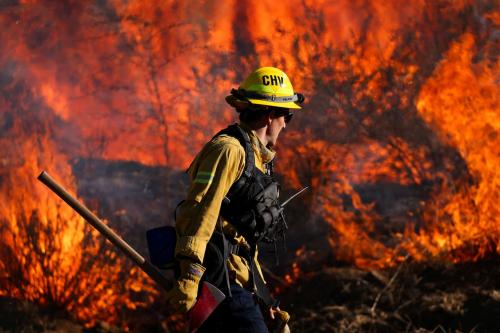The Representative of the Secretary-General on the human rights of internally displaced persons today voiced his grave concern over continuing reports of forced relocation and other serious human rights violations against displaced persons in the Darfur region of Sudan and called on the Government of Sudan to fulfill its responsibilities to protect and assist its own people.
It was reported yesterday that, for the second time in one week, Sudanese authorities have stormed the Al Geer camp in South Darfur to forcibly move people who had sought refuge there. Police allegedly battered civilians and used tear gas against women and children while destroying their shelters. Meanwhile, in North Darfur, displaced persons told a United Nations team in Tartura village that they had recently been forced from their homes in Abu Shouk by police who used tear gas, electrical gadgets and threats to force them onto trucks.
As the Secretary-General made clear in his recent statement on the situation in Al Geer, the forcible relocation of persons, whether from their homes or places of refuge, is a violation of international humanitarian and human rights law, particularly when their safety or well-being is compromised by the move. The Representative recognizes, as the Government of Sudan has reportedly asserted and as recently affirmed in a report to the United Nations Security Council by the Secretary-General’s Special Representative on Sudan, Jan Pronk, that the rebels may also be responsible for violations of the cease-fire agreement. However, this does not excuse the Government from its responsibilities.
As the representative of a sovereign state, it is the Government of Sudan that bears the primary responsibility to ensure the protection of its own people. While it is certainly timely that the International Commission of Inquiry on Darfur has just arrived in Sudan for its preliminary investigations of human rights violations, the Government must independently act to prevent its own officials from engaging in forcible relocation and other human rights violations. Where violations are perpetrated by Janjaweed militia or other actors, the Government has an equal duty to intercede. In this respect, Representative Pronk’s report that governmental authorities have failed to prevent attacks on civilians by militia members or to bring those responsible to justice is extremely troubling. The recent accord by Government and rebel representatives on issues of security and humanitarian access is a welcome development, but these words must be reflected in action on the ground.
Conflict and displacement are not new in Sudan. With the addition of over 1.6 million persons newly displaced in Darfur in just the last year, Sudan today hosts over 5 million internally displaced persons, nearly twice as many as any other country in crisis anywhere in the world. While progress toward peace in the larger war between the Government and the Sudan People’s Liberation Army in the south of Sudan has raised hopes that many of these displaced might soon be able to go home, this progress is threatened by the Darfur crisis.
The Representative therefore calls on the Government to immediately halt forced relocations and other serious violations of the rights of displaced persons by its own officials and act to prevent such actions perpetrated by Janjaweed militia and others. While the international humanitarian community and the Office of the High Commissioner for Human Rights have strengthened their presence on the ground, a greater investment is needed, particularly with regard to staff with protection expertise and capacity. The African Union has established a pioneering peacekeeping presence, but it must be given the mandate to provide protection to civilians as well as adequate numbers of troops, equipment and support, especially if the Government of Sudan does not have the capacity or willingness to do so.
If these measures are taken, this crisis may yet be contained and the civilian population of Darfur given some sense of security and protection, which is so urgently needed. Then, the parties can undertake the arduous but essential task of addressing the root causes of the conflict and finding solutions for the plight of the displaced.



